Meet Zohran Mamdani, the Next Mayor of New York
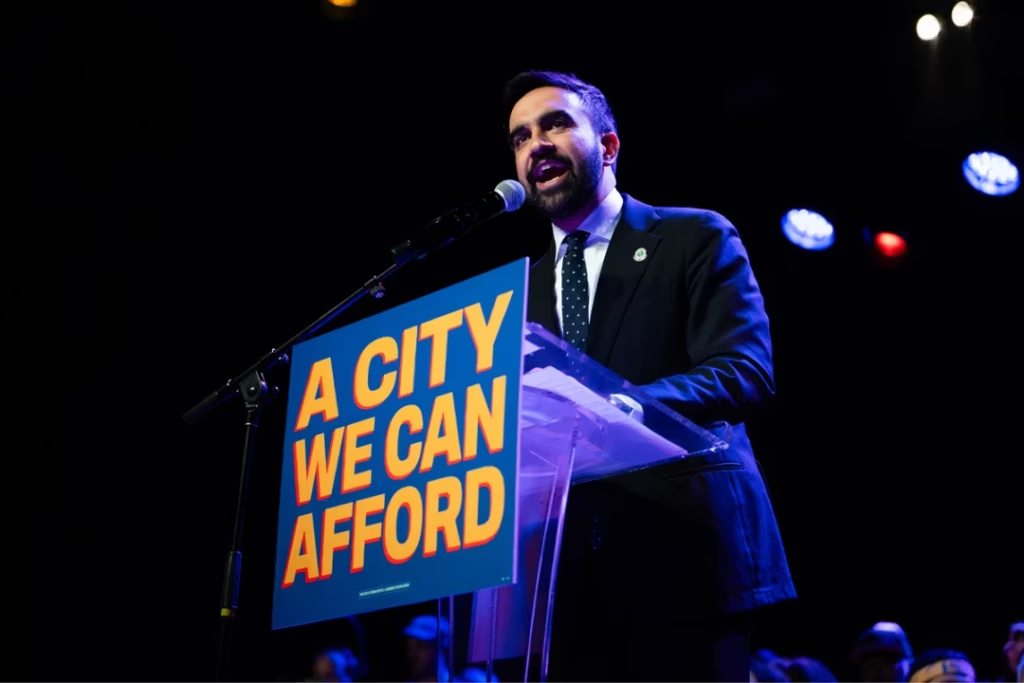
There was a seismic earthquake a week ago, not in any remote part of the world, but right in America, in the middle of one of the world’s largest cities, New York. This sudden shake-up was the stunning political upset in the city’s Democratic Mayoral election: Zohran Mamdani, a 33-year-old little-known Muslim-Indian-American legislator, had overwhelmingly trounced Andrew Cuomo, 67, former Governor of New York and the scion of a political dynasty.
Mamdani won by 44 percent of first rank votes and Cuomo, who had been so confident of victory that he had hardly bothered to campaign, conceded the victory to him. For each vote that Cuomo got, the cost was a hefty $ 87 while Mamdani spent just $ 19 on each voter https://www.thecity.nyc/2025/06/26/cuomo-fix-city-independent-expenditures-mayor/
His unprecedented victory sent shock-waves across not only New York but America and the world. In an increasingly authoritarian Trumpian America where even traditionally liberal New York is endangered, the victory of a blazing young Democratic socialist surprised everyone, even the staid Democratic Party, which for the most part had supported Cuomo, as had most millionaires and business denizens.
According to the Gothamist, Mamdani won 30% of the primary election districts Trump won in the 2024 general election and garnered over 35,000 votes in districts that went for Trump. Around the Jamaica Hills, Queens intersection where Mamdani filmed last November, voters in 2024 moved toward the GOP by nearly 25 points. Mamdani won 84.2% of the vote.
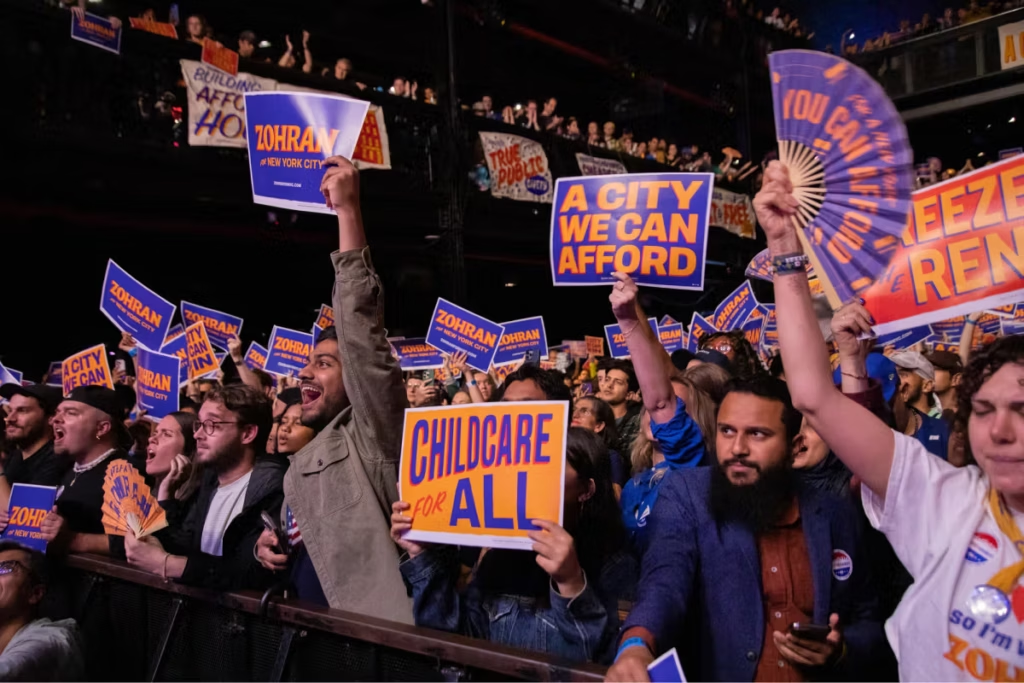
The charismatic Mamdani with his endearing smile has racked up thousands of supporters with his unique voice and message– he has walked the length of Manhattan from end to end, shaking hands and sharing selfies and smiles; he has plunged, fully suited, into the ocean to promote his rent freeze. Thanks to the amplified power of social media, racism and Islamophobia, he has acquired thousands of haters too. The vitriol against him is just as stunning, accusing him of everything from inexperience to antisemitism.
New York City has 447,000 South Asians, the largest population of this community in the country and Mamdani has been endorsed by the Indian-American Impact Fund. According to its Executive Director Chintan Patel, “At a time when MAGA forces nationwide threaten to upend civil liberties and democratic values, we need a fighter like Zohran—someone who will stand up for fairness, protect our rights, and deliver solutions that work for all New Yorkers. This campaign is about more than just winning an election—it’s about changing who gets seen, heard, and prioritized in City Hall.”
Mamdani puts it simply: “This campaign is about building a bigger table—where every New Yorker feels seen, heard, and represented. From rising costs to threats against our rights, I’m ready to deliver a city government that works for all of us.”
The primaries in which he will face current Mayor Adams and Cuomo, who are both running as Independents, as well as the Republican candidate Curtis Sliwa, still lie ahead. But just in the course of a few days, the tide seems to be turning: he has won the support of some big-name Democrats including Senator Elizabeth Warren who posted on Instagram:
“Zohran’s inspiring campaign showed what grassroots movements can achieve when we fight for bold policies. His focus on government serving the people—not billionaires—will make life more affordable for NYC. I strongly support @zohrankmamdani He’ll be a fantastic mayor!”
So, who is Zohran Mamdani and can be succeed in remaking New York, if he wins the -Mayorship of the city in the general election?
I first met Mamdani five years ago, when I interviewed him, a little-known activist and a rapper known as Mr. Cardamom, where he made some delightful videos about bigger causes. It is passion which brings him to the political space: Prior to representing the 36th Assembly District, he worked as a foreclosure prevention housing counselor, helping low-income homeowners of color fight off eviction and stay in their homes. It was this job that inspired him to run for office. He is the first South Asian man to serve in the NYS Assembly as well as the first of Ugandan origin and only the third Muslim to ever be a member of the body.
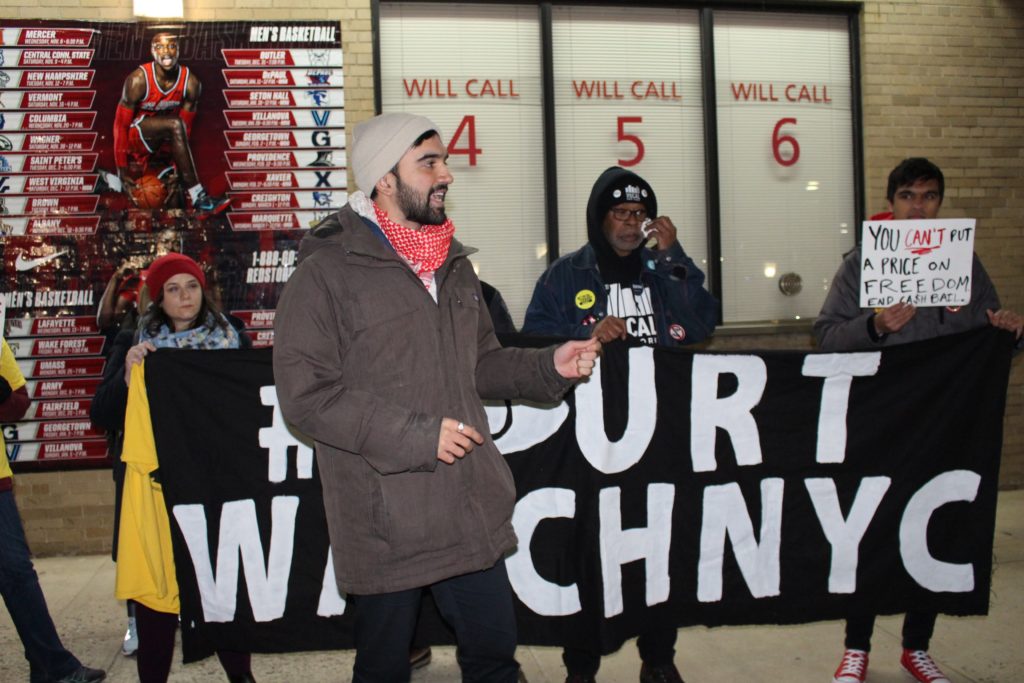
The son of celebrated filmmaker Mira Nair and Mahmood Mamdani, the noted Columbia professor, how much was he influenced by the parents he’s had and how much has that influenced the life he’s chosen in the public sector? Mamdani, who lived in Kampala till he was 7, has Kwame as his middle name, after the first prime minister of Uganda. He recalls that from a very young age, politics was a big part of his life since his father’s family had been expelled from Uganda in 1972.
“That history is something I grew up with and something which is very real and close to me. And so, I would constantly deal with this question of where home is, and you know my mother’s work also really meditates on that question of home. This is a question that I have been thinking about for my whole life. And I am so lucky to have the parents that I have, people who have fought for justice in their own ways, whether it’s through academia or through film to shine a light on that which has been ignored for far too long.”
As a housing specialist the challenge was in turning each sad life around. Mamdani’s battle has been with housing instability which plagues so many South Asians in Queens. There are hundreds of thousands of South Asians in New York, and for many homeowners or renters who speak only an Indian language and little English, finding support is difficult.
Indeed, the Indian-American community is a mixed microcosm of this country where there are a lot of very wealthy, Indian-Americans and also Indian-American families that are struggling. According to Mamdani, if you add Bangladeshi, Pakistani and Nepalese families, there are many who are really having a very difficult time of it. In his three terms as a legislator, Mamdani tried to alleviate many of these problems of his constituents in Queens.
So, what does democratic socialism mean to Mamdani? This was his answer to me five years ago: “That which is necessary to live a dignified life, an extension of democracy, from the ballot box into all other aspects of our lives into our workplace, our schools, our healthcare system, because, frankly, we cannot allow the market to determine pricing for things which are necessary.”
He is well aware that New York is made up of many different communities which have remained unseen by the powers that be. When he says he will be a mayor for all of New York, he understands that means all New Yorkers, be they Indian-Americans or Pakistani-Americans, be they Jewish-American or Palestinian-Americans. Many may not even be citizens – but are New Yorkers with needs and dreams, nevertheless.
He is very clear-eyed and honest about how he sees the world and in his ideal world both the Israelis and the Palestinians would thrive. According to The New York Times, “He has sharply criticized Israel’s actions in Gaza and has voiced support for the Boycott, Divestment and Sanctions movement. He has also said he believes that the Israeli prime minister, Benjamin Netanyahu, should be arrested.
But Mr. Mamdani has also stated that there is no room for antisemitism in New York City, adding that if he were elected, he would increase funding to combat hate crimes. He has consistently drawn a distinction between anti-Zionism and antisemitism.”
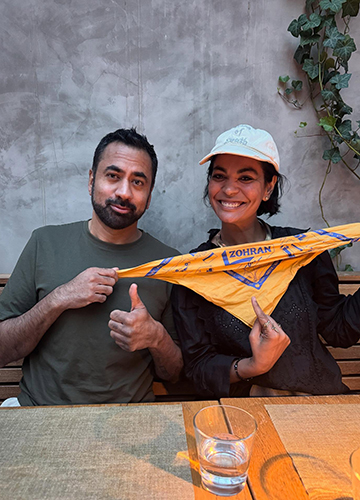
Shruti Ganguly, a filmmaker and longtime family friend, says, “Zohran will be an incredible mayor. We can see that, not just from his campaign, but also his principles, his ideas, his subsequent actions which resonate deeply with the people he wants to uplift and serve, which is the often-overlooked working class New Yorker. New York has become one of the most expensive cities in the world, pricing out the very people who build and maintain it.”
As to why the Mamdani campaign has had such impact, Kavitha Rajagopalan, Director of Asian Media Initiative has an explanation: “He engaged a fascinating multiracial diasporic electorate, turning out unprecedented numbers of immigrant and next-generation voters from Queens, Central Brooklyn, and upper Manhattan, from communities that rarely enter primary election voting booths.” She points out that many have commented on the campaign’s visual language and social media prowess, and the impact of his organization’s multilingual conversation across the city.
The younger crowd as well as many forgotten communities have certainly rallied around him, and he has created a massive army of 50,000 volunteers ready to phone bank, knock on doors and spread the word. The actor Kal Penn had supported his State Assembly run and subsequent re-elections by hosting fundraisers and volunteering for his campaigns. He recalls, “I paid him a visit when he was hunger striking with NY taxi drivers to demand debt relief in 2021 and was impressed with how he led with a combination of love, positivity, and vociferous organizing.”
Penn, who was President Obama’s Liaison to Young Americans and Associate Director of Public Engagement in the Obama White House, thinks that Mamdani’s vision for NYC is the wave of the future. He feels the old guard of the Democratic party is completely out of touch with the base, as evident in the last Presidential election, and in the support that Governor Cuomo and Mayor Adams have amassed through their relationships with Trump donors, billionaires, and old school democrats.
“The DNC keeps asking how it can reach younger votes despite having evidence of exactly how, as Zohran has shown by winning this primary,” he says. “Nobody agrees with every politician on every issue, but Zohran’s vision for New York City is garnering so much attention. He leads with clarity, inclusion, and substance. He has expanded the base with scores of new first-time voters, most of them young. This is an exciting moment, filled with positivity, and I hope the older guard of Democrats recognize that this is an inclusive path forward; one which they should support.”
Many voters are apprehensive about the changes and how they will affect their pocketbook but change always involves risk and can lead to a much better scenario. Ganguly, who lives between New York and Oslo, says Mamdani has concrete plans for all his economic reforms. She points out that she has witnessed the principles of socialism in action in Oslo, also a wealthy city, and the community as a whole, benefits from this. She says, “I do not think that rich New Yorkers honestly have any grounds to feel that supporting the working class detracts from what they have access to. If anything, paying it forward by even a slight amount can be transformative and make New York a better city for everybody.”
Actor and writer Aasif Mandvi and his wife Shaifali have been a part of canvassing for mani, organizing fundraisers and phone banks for him. Says Mandvi, “Zohran’s win is a repudiation of a Democratic party that is captive to corporate and entrenched interests and the status quo. I thought one of the most brilliant parts of Zohran’s strategy was the way he was able to clearly and succinctly articulate his platform and not be forced into apologizing for his stances when people came at him using the world “socialist” as a scare tactic.
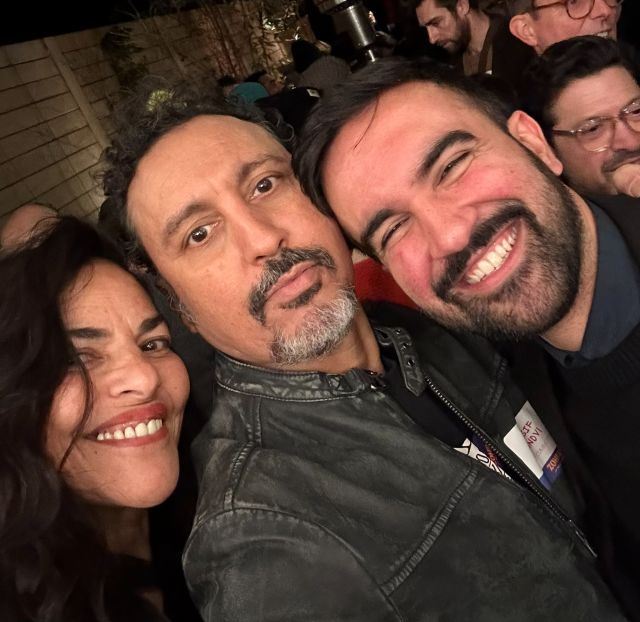
He further makes another thoughtful point: “People act like his success is about social media, but it’s not. It’s about clear and firmly-held convictions, married to policies and effective communication. You can’t manufacture what he brought to the people of NYC but you can learn that nothing will change for the better by being cowardly and telling people to accept incremental changes that you can’t even communicate effectively.”
A longtime resident of New York is arts leader Aroon Shivdasani. She believes Mamdani’s multicultural family can be an asset in running a multicultural city: “Zohran has the distinct advantage of having a Hindu mother, a Muslim father, a Syrian wife, was born in Uganda, lived in India and is endorsed by a Jewish candidate also running for the same office!”
Indeed, what could be a better road map for running a diverse city like New York which is populated by everyone from everywhere else? Seeing the Other in himself is something which seems to be second nature to Mamdani.
The refreshing – and hopeful – thing about him is that he does not forget his roots; he owns all his history and is proud of it. In the end, Zohran Kwame Mamdani with his rich inheritance of India, Uganda and America is also a story-teller and he would want to use his music and his stories to share both roti and roses – necessities and the arts – with everyone.
As he told me during that first interview I did with him, when he was just starting the journey with his first public office: “Whether it’s art, film, music or politics, it’s about telling a story and it’s about telling a story that has been ignored. The most powerful and the most potent are the ones that we have not heard before, or we’ve not been allowed to hear. And the story we are telling in this campaign is about all of us who are fighting back for our city.”
(Lavina Melwani is a New York-based journalist for international media and blogs at Lassi with Lavina. A shorter version of this article first appeared in The Week.)

1 Comment
Pingback: Zohran Mamdani’s Inauguration: Humanity & Hope in New York - Lassi With Lavina